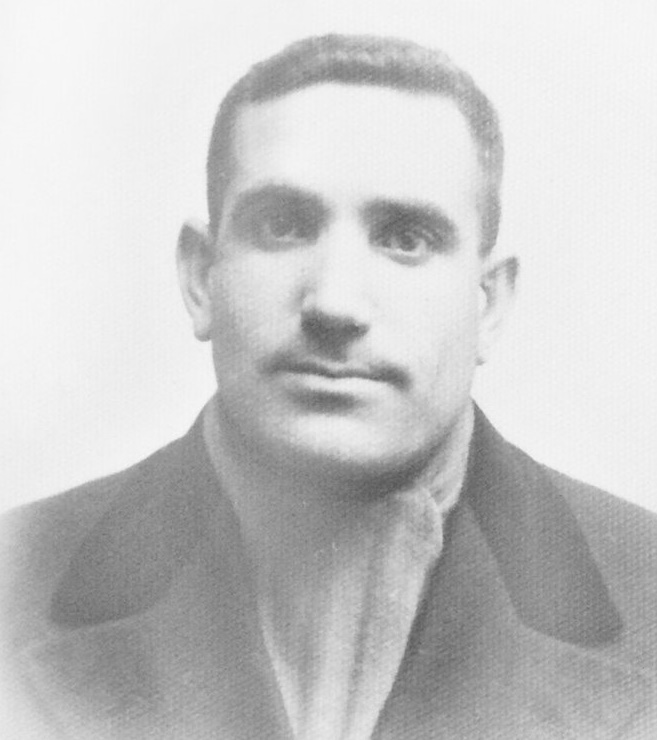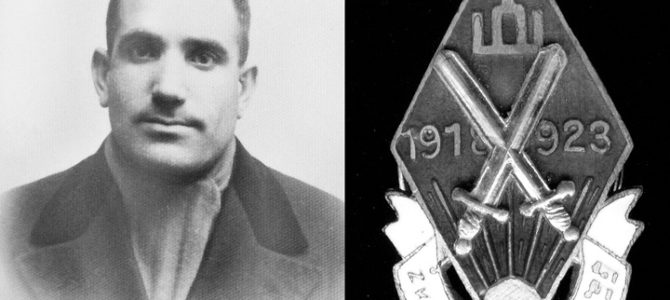lrytas.lt

The Lithuanian Jewish Community held a virtual lecture on contributions made by Lithuania’s Jews in the battles for national independence. Journalist and history researcher Vilnius Kavaliauskas presented to the wider audience little-known historical facts about Jewish volunteer soldiers who fought for the independence of the young Lithuanian state one hundred years ago.
“This is an undeservedly forgotten story which we want to tell everyone today. In 1918 Jews consciously chose to be citizens of the independent Republic of Lithuania then being born, were active participants in public life and introduced many important innovations.
“All of that is being forgotten now. Our goal is to remember their stories and their names, and I personally hope this will lead to an end of talking about Jews as foreigners, as ‘others.’ We were and are the joint creators of Lithuanian history,” said LJC chairwoman Faina Kukliansky, who initiated the discussion.
Journalist and author Vilius Kavaliauskas, who has taken a keen interested in the period of the battles for independence and has shared the information and discoveries he’s uncovered, agreed: “Researching the lists of the Lithuanian volunteers who were awarded for contributions to the Lithuanian state during the first republic, I find many Jewish surnames. Some also have a date of birth and a date of death, while others lived on and continued to contribute to creating a better Lithuania later on. The Jewish histories are especially interesting in that they were and our suppliers, medics and organizers for our military, which goes to show the volunteer Lithuanian military was well-organized, highly-qualified people served in it. This is extremely important to take into account; Lithuania has always appreciated competence and knowledge.”
Kavaliauskas says Lithuanian Jewish representatives were sent on different diplomatic missions because there were many highly qualified attorneys among them and they had important contacts for gaining recognition of the Lithuanian state. He shared some interesting and incredible stories from 1918 to 1920, the period of transformational battles for Lithuanian independence.
Weapons Store Keeper
“When the Lithuanian military was being created there was a lack of many things. There weren’t enough soldiers so many officers volunteers and weapons were sorely needed,” Kavaliauskas said. Several people undertook an initiative to purchase weapons from German units which remained on Lithuanian territory after the war. One such arms purchaser was Herman Aronson, an affluent businessman who purchased weapons from Germans legally and set up two different weapons warehouses. In this manner he was able to supply arms to the Lithuanian military as well. “It’s an interesting fact that Herman Aronson had his own manor estate and fed the Lithuanian military there, and after the battles he was awarded the Cross of Vytis, an award which honors those who have performed acts of merit to the Lithuanian military,” Kavaliauskas said.
From Cobbler in Balbieriškis to Doctor in Switzerland
Ilyosh Zizle, a professional police officer and former deputy chief of the Kaunas militia, was also presented the Cross of Vytis. In 1918 when there were still German soldiers in the city, Zizle did important work: conflict resolution, patrols and taking measures to prevent the Germans from capturing Lithuanian soldiers.
Both figures set examples for the Jewish communities and were highly regarded by their contemporaries, but both died in the Holocaust.
“Now we don’t even have photographs of these people, but in their time they contributed to the consolidation of the Lithuanian state,” Kavaliauskas said.
Along with highly-educated and well-travelled Jews, average members of the community also joined the volunteer forces. Haim Silkner served in the White Russian Battalion (many Jews served there) which operated in Belarussian territory but which was part of the Lithuanian military and also fought for Lithuanian independence. Later after the Poles disarmed the battalion, Silkner somehow made his way to Kaunas where he continued the battle.

Full story in Lithuanian here.


